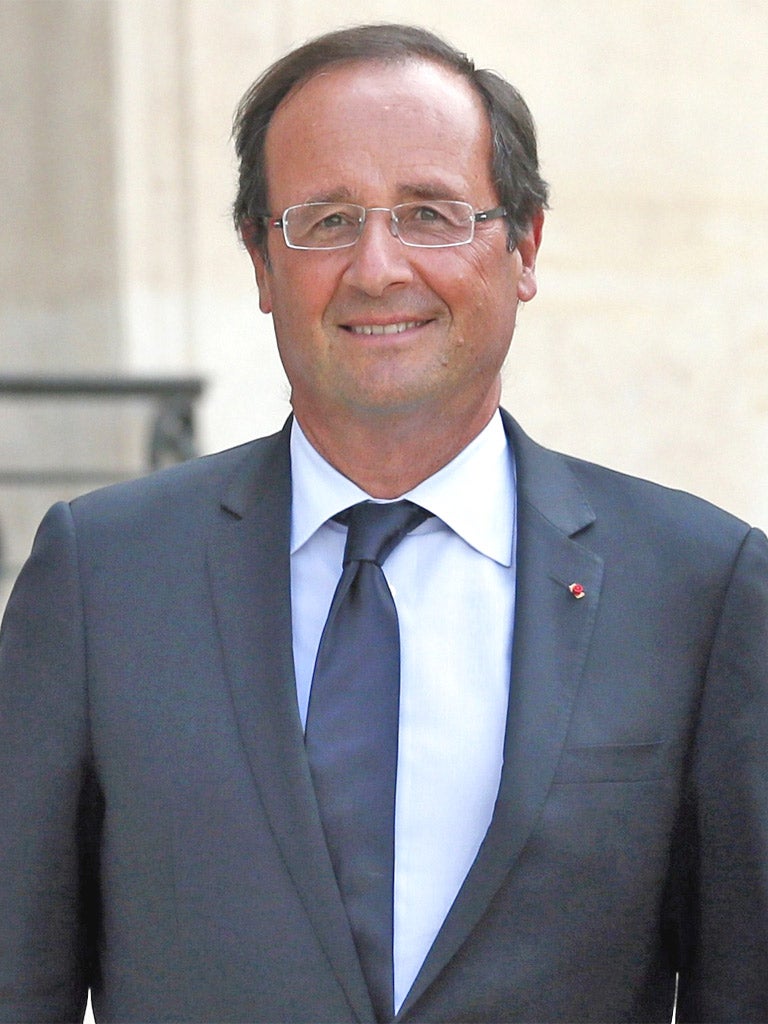Centre-left criticises 'mediocre' Hollande as French crisis deepens
President returns early from holiday to grim warnings over the economy and jobs

Your support helps us to tell the story
From reproductive rights to climate change to Big Tech, The Independent is on the ground when the story is developing. Whether it's investigating the financials of Elon Musk's pro-Trump PAC or producing our latest documentary, 'The A Word', which shines a light on the American women fighting for reproductive rights, we know how important it is to parse out the facts from the messaging.
At such a critical moment in US history, we need reporters on the ground. Your donation allows us to keep sending journalists to speak to both sides of the story.
The Independent is trusted by Americans across the entire political spectrum. And unlike many other quality news outlets, we choose not to lock Americans out of our reporting and analysis with paywalls. We believe quality journalism should be available to everyone, paid for by those who can afford it.
Your support makes all the difference.President François Hollande is coming under fire from within his own camp for the first time as France prepares for a grim return from the long summer holidays.
Mr Hollande will chair a cabinet meeting in Paris today – one week earlier than usual – as even centre-left newspapers criticise his allegedly "halting" and "mediocre" response to the economic problems facing France and the EU.
With the economy stalled and thousands of jobs under threat, Mr Hollande has not yet explained how he can deliver his apparently contradictory election promises to rekindle growth while cutting France's budget deficit to three per cent of GDP next year.
Critics, including the hard left leader Jean-Luc Mélenchon, say that Mr Hollande's obsession with his accessible, low-key governing style, rather than substance, is starting to wear thin. Since his election in May, the government has pushed through only two significant pieces of legislation: a new law on sexual harassment and an amended budget to increase taxes on the wealthy.
The partisan centre-left newspaper, Libération, carried a front-page banner headline yesterday: "The very mediocre summer of François Hollande." Another Hollande-supporting newspaper, Le Monde, said the President was facing "preliminary charges" of "hesitation" and "immobilism".
To this, Mr Hollande's response has been, once again, mostly stylistic. After returning from holiday one week earlier than usual by an ordinary service train, he told waiting reporters: "The political rentrée (return to work) starts now." Mr Hollande had a working lunch with his Prime Minister, Jean-Marc Ayrault, yesterday to discuss how to slash a record €33bn from state spending in the draft budget for 2013. Even cuts of this magnitude may not be enough to bring France's deficit down to the eurozone target of three per cent of GDP.
The French economy was static in the second quarter and may shrink slightly in the third. Mr Holland and his Finance Minister, Pierre Moscovici, are insisting, nonetheless, that the 2013 budget plan will be based on a forecast of 1.2 per cent growth next year. Most economists suggest that France will be lucky to grow by 0.7 per cent – confronting Mr Hollande with the crippling choice between additional budget cuts or missing the deficit-shrinking deadline.
So far, international markets have been kind to Mr Hollande. France is currently borrowing at record low interest rates. That could change radically if the government fails to meet the deficit target for 2013.
Tomorrow, President Hollande will travel to Berlin for talks with Chancellor Angela Merkel. They will discuss the Greek and Spanish crises. Mr Hollande will, once again, try to persuade the Germans to accept some form of direct intervention by the European Central Bank to ease the market pressure on struggling southern European countries.
President Hollande's election in May has steered EU policy away from the austere, cuts-first approach of the Sarkozy-Merkel years. However, critics fear that the promised EU investment in growth-promotion schemes may be too little and too late to avoid a serious economic downturn in France in the next year.
The programme of 3,000 job cuts announced by Peugeot-Citroen in July is expected to be the first of a series of large-scale redundancies in the next six months.
What, Mr Mélenchon and others are asking, happened to Mr Hollande's promise to rebuild France's industrial base?
Join our commenting forum
Join thought-provoking conversations, follow other Independent readers and see their replies
Comments